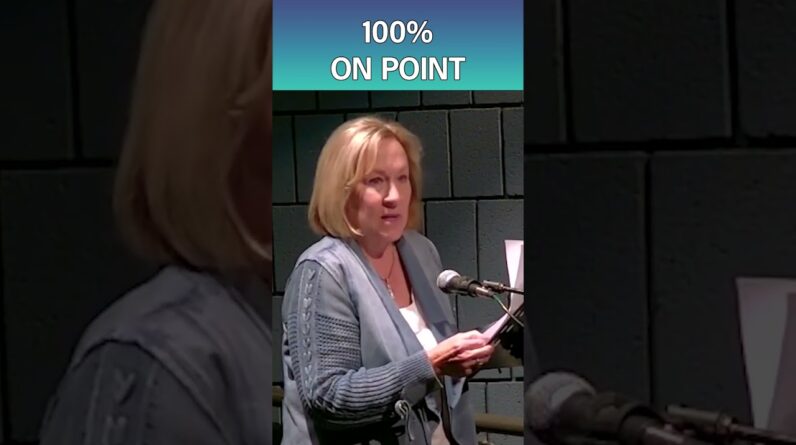
Are you ready to dive into the controversial topic of “Mom vs Woke School Board”? Strap in and join us as we explore the clash between parental concerns and the progressive ideologies being promoted within our education system. In this insightful blog post, we will shed light on the challenges faced by parents like you, who often find themselves at odds with a school board that prioritizes an agenda over the education of our children. So, let’s take a closer look at the tug-of-war between moms and the woke school board, and understand the impact it has on our children’s upbringing.
Watch this Video To Find Your Pefect Online Job Now!
Title: Mom vs Woke School Board: Reshaping Education Priorities?
Introduction:
In this article, we will delve into the controversial debate surrounding the role of schools in addressing LGBTQ+ issues and the concerns of parents who believe it distracts from core subjects. As a parent, you may have reservations about schools being involved in such matters and wonder whether these discussions should be left to parents instead. Let’s explore both perspectives to gain a better understanding of the issue.
Stick to Reading, Writing, Arithmetic, Science, History, Gym, Music, and Art:
One argument raised by concerned parents is that schools should primarily focus on teaching fundamental subjects such as reading, writing, arithmetic, science, history, gym, music, and art. They argue that time spent on LGBTQ+ issues takes away from these core subjects, potentially affecting their child’s overall educational development.
Avoid Getting into Grand Political Issues:
Another viewpoint shared by some parents is the belief that schools should refrain from getting involved in grand political issues. They argue that discussing LGBTQ+ topics can be highly polarizing and divert attention from the primary purpose of education. They assert that schools should remain neutral and leave political discussions to other contexts.
It’s Not Your Business or Core Competency:
Critics of schools addressing LGBTQ+ issues argue that it falls outside their jurisdiction and competence. They emphasize that teachers are not trained to tackle complex social issues and that the focus should remain on providing students with a well-rounded academic foundation. By avoiding these sensitive topics, schools can ensure they stay within their designated areas of expertise.
Can’t Be Everything to Everybody:
Supporters of limited school involvement assert that schools cannot cater to every individual’s specific needs and preferences. They argue that tackling LGBTQ+ issues might open a Pandora’s box, leading to demands for addressing various other concerns and identities. Given the limited time and resources available, proponents of this viewpoint argue that schools should prioritize broader educational goals.
Parents Should Address LGBTQ+ Discussions with Their Child, Not the School:
Many parents advocate for the principle that discussions about LGBTQ+ topics and values should be initiated at home. They believe it is a parental responsibility to educate their children about these issues in a manner that aligns with their family values and beliefs. By doing so, parents can ensure that their child’s understanding of LGBTQ+ matters is shaped by their own perspectives.
It’s the Parents’ Responsibility to Baptize Their Child, Not the School’s:
Alluding to the aforementioned argument, some parents argue that schools encroaching on discussions related to sexual orientation and gender identity is equivalent to crossing a boundary. They state that parents have the right to decide when and how to introduce these topics to their children, just as they have the right to administer religious sacraments. They advocate for maintaining the separation of responsibilities between home and school.
Respectfully, Stay in Your Lane and Butt Out:
In light of the concerns raised by parents, supporters of limited school involvement advise educators to focus on their core mission of imparting knowledge and skills. They argue that by avoiding controversial issues like LGBTQ+ matters, schools can reduce conflicts, maintain neutrality, and preserve a harmonious educational environment for all students.
In conclusion, the debate regarding schools’ involvement in LGBTQ+ issues continues to divide opinions. While some parents emphasize the importance of maintaining a laser focus on core subjects, others argue for holistic education that encompasses diverse societal issues. As a parent, it is essential to actively engage with your child, communicate your values, and shape their understanding of these matters yourself. By fostering dialogue and respect, we can strive towards a society that values education and inclusion in equal measure.

